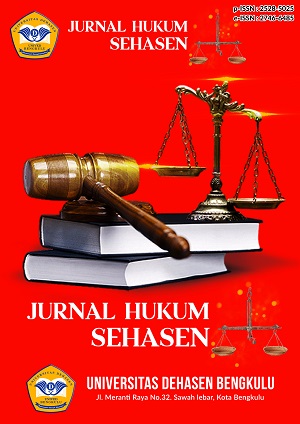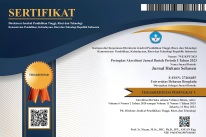Monitoring Improper Waste Disposal By The Departement Of Environment (Dlh) Of Bengkulu City Based On Regional Regulation
Abstract
Monitoring Improper Waste Disposal by the Department of Environment (DLH) of Bengkulu City Based on Regional Regulation Number 2 of 2011 Regarding Waste Management in Bengkulu City Alfio Ayu Lestari Sandi Aprianto, S.H, M.H Ferawati Royani, S.H, M.H One of the environmental issues frequently faced by the community is the abundance of scattered waste in places where they should not be. Therefore, it is important to evaluate the supervision of waste disposal prohibitions and the effectiveness of the local regulations governing them. Based on this issue, the problems can be formulated as follows: How is the supervision carried out by the Department of Environment of Bengkulu City regarding improper waste disposal, and how is the Law Enforcement conducted by the Department of Environment towards those who dispose of waste improperly. The purpose of this study is to determine the supervision conducted by the Department of Environment of Bengkulu City in controlling waste against the prohibition of waste disposal in random places and to understand the legal enforcement processes carried out by the Department of Environment towards those who dispose of waste improperly. The theories used in this research are the supervision theory and the law enforcement theory. This research falls under the category of Empirical Research, which is a legal research method that uses empirical facts taken from human behavior, both verbal behaviors obtained from interviews and actual behavior observed directly. The results of the research conducted at the Department of Environment of Bengkulu City can be concluded that the supervision conducted by the Department of Environment at improper waste disposal sites, especially at Rawa Makmur street, Pasar Bengkulu street, and Lingkar Barat main road to golf field of Bengkulu City, are still not running optimally. This can be seen from the improper implementation of regulations and also from the lack of public understanding regarding waste management regulations, waste handling, and waste disposal prohibitions, leading to an increase in illegal improper waste disposal sites.
Downloads
Copyright (c) 2024 Alfio Ayu Lestari, Sandi Aprianto, M. Arafat Hermana

This work is licensed under a Creative Commons Attribution-ShareAlike 4.0 International License.






